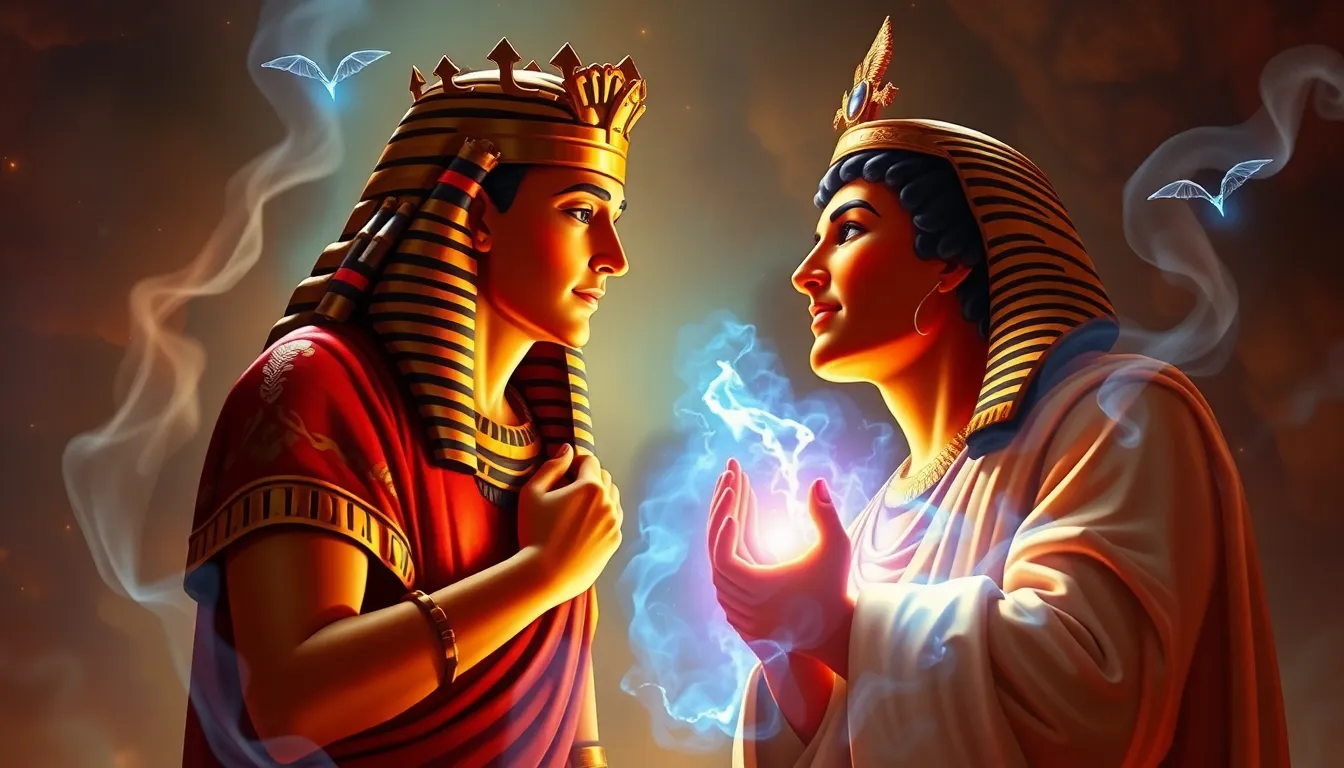The Festival of the Sacred Heart: Love and Compassion
I. Introduction
The Festival of the Sacred Heart is a profound celebration that emphasizes love, compassion, and the importance of community. Rooted in Christian traditions, this festival serves as a reminder of the central tenets of faith: to love and serve one another. Throughout history, the significance of love and compassion has transcended religious boundaries, influencing various cultural practices and inspiring individuals to foster kindness and empathy.
This article aims to explore the origins, practices, and impact of the Festival of the Sacred Heart, shedding light on its importance in promoting a sense of community and social justice.
II. Historical Background
The devotion to the Sacred Heart can be traced back to the Middle Ages, where it began as a private devotion among Christians. The heart symbolizes the love of Jesus Christ, encompassing His compassion and mercy toward humanity.
Key figures, such as Saint Margaret Mary Alacoque, played a crucial role in the establishment of the festival in the 17th century. Her visions of Christ and His Sacred Heart led to the formal recognition of the feast day, which has evolved significantly over the centuries.
As the festival gained popularity, it became associated with various cultural and religious practices, adapting to the needs of different communities around the world.
III. Theological Foundations
In Christian theology, the Sacred Heart represents the love of Jesus for humanity—a love that is unconditional and sacrificial. It embodies the concepts of mercy, forgiveness, and compassion, reminding believers of their duty to emulate these virtues in their lives.
The symbolism of the Sacred Heart can be broken down into several key themes:
- Love: The heart is a universal symbol of love, representing the deep emotional connection between God and humanity.
- Mercy: The Sacred Heart calls for a compassionate response to human suffering and injustice.
- Charity: The devotion encourages acts of charity and service to those in need.
This theological foundation connects to broader themes of community service, inspiring individuals to engage in acts of kindness and support for one another.
IV. Celebratory Practices
The Festival of the Sacred Heart is marked by a variety of traditional rituals that hold deep meaning for participants. Some common practices include:
- Liturgical Celebrations: Special Masses are held, focusing on the significance of the Sacred Heart and its message of love.
- Processions: Many communities participate in processions that honor the Sacred Heart, often featuring music and prayers.
- Acts of Service: Community service projects are organized to embody the spirit of compassion and charity.
In recent years, modern adaptations of the festival have emerged, incorporating contemporary art, music, and literature. These adaptations ensure that the festival remains relevant and accessible to new generations, fostering a collective spirit of love and compassion.
V. Global Observances
The Festival of the Sacred Heart is celebrated worldwide, with each culture infusing its unique customs and traditions into the observance. Notable examples include:
- In France: The festival is celebrated with vibrant processions and communal meals, emphasizing the unity of the community.
- In Latin America: Festivities often include colorful parades and cultural performances that highlight local heritage.
- In the Philippines: The festival is marked by a week of prayer and reflection, culminating in a grand celebration involving the entire parish.
The festival’s global observance not only strengthens local traditions but also fosters interfaith dialogue and relationships, promoting a shared understanding of love and compassion across cultural boundaries.
VI. Impact on Community and Social Justice
The Festival of the Sacred Heart has inspired numerous initiatives aimed at promoting love and compassion within communities. Some notable examples include:
- Charitable Acts: Many communities organize food drives, fundraisers, and outreach programs during the festival to support those in need.
- Educational Programs: Workshops and seminars are held to educate individuals about the importance of compassion and social justice.
- Interfaith Initiatives: The festival often serves as a platform for different faith groups to come together, promoting unity and understanding.
These initiatives demonstrate the festival’s role as a catalyst for social change, encouraging individuals to actively participate in creating a more compassionate world.
VII. Personal Reflections and Testimonies
Many individuals who participate in the Festival of the Sacred Heart share profound stories of transformation and inspiration. Participants often report:
- A renewed sense of purpose in their lives, driven by the festival’s message.
- Emotional healing through communal support and shared experiences.
- A deeper connection to their faith and the values of love and compassion.
Testimonies highlight how the festival fosters a spirit of unity and encourages attendees to carry the message of love and compassion into their daily lives, creating ripples of positive change in their communities.
VIII. Conclusion
In summary, the Festival of the Sacred Heart holds significant importance in promoting love and compassion across cultures and communities. It serves as a reminder of the enduring relevance of these values in our contemporary world.
As we reflect on the festival’s teachings, we encourage readers to engage with its principles in their own lives. By embodying love and compassion, we can contribute to a more just and united world.
Ultimately, the message of the Sacred Heart continues to resonate today, urging us all to open our hearts and extend our hands in service to one another.




